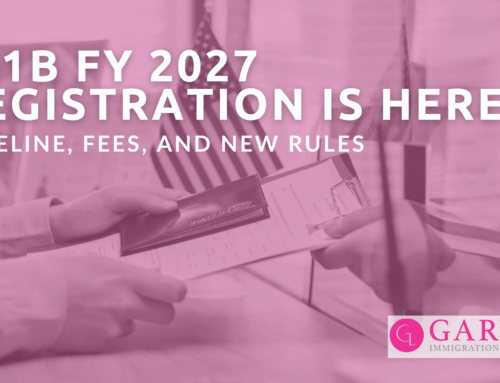The United States Citizenship and Immigration Services (USCIS) plays a pivotal role in processing immigration applications, petitions, and benefits for those seeking to live, work, or reunite with family members in the United States. However, in recent times, USCIS has faced significant processing delays, affecting applicants and petitioners. In this blog post, we’ll shed light on the causes and consequences of these delays and provide some insights on how to navigate this challenging situation.
Several factors contribute to the current processing delays at USCIS:
- Increased Workload: USCIS handles a substantial workload, including visa applications, green card petitions, and naturalization applications. As immigration processes evolve, more applications are submitted, putting additional strain on USCIS resources.
- Administrative Changes: Changes in immigration policies, procedures, and regulations can lead to temporary slowdowns as USCIS adapts to new guidelines. Frequent policy adjustments can complicate the processing of cases.
- Resource Constraints: Budgetary constraints and staffing issues have also affected USCIS’s ability to process applications efficiently. Insufficient resources, including personnel and funding, can lead to longer wait times.
- COVID-19 Pandemic: The pandemic disrupted normal operations, leading to office closures, social distancing requirements, and remote work arrangements. These adjustments had a significant impact on USCIS’s ability to process applications promptly.
Consequences of Processing Delays
The processing delays at USCIS have far-reaching consequences for immigrants, employers, and families. These consequences include:
- Family Separation: Delays in family-based immigration petitions can keep loved ones separated for extended periods, causing emotional and financial hardships.
- Uncertainty: Applicants often experience anxiety and uncertainty while awaiting USCIS decisions, affecting their ability to plan for their future in the United States.
- Economic Impact: Employment-based immigration delays can hinder employers from filling critical positions with skilled workers, affecting business operations and economic growth.
- Legal Status Challenges: Delays in green card processing can impact an individual’s legal status, making it difficult to secure employment or access benefits and services.
Navigating the Challenges
While USCIS processing delays can be frustrating, there are steps you can take to navigate the situation:
- Stay Informed: Regularly check USCIS’s website and monitor your case status online. USCIS often updates processing times, which can provide some insight into the expected wait times.
- Seek Legal Advice: If you’re unsure about the status of your application or how the delays might impact your immigration journey, consult with an immigration attorney. They can offer guidance and potential solutions.
- Be Patient: Understand that processing delays are largely beyond your control. Patience is key during this period. Keep all your documentation in order, as USCIS may request additional information to process your case.
- Advocate for Change: Stay informed about immigration policy changes and consider advocating for reforms to reduce processing delays.
Conclusion
The current processing delays at USCIS are challenging for many individuals and families seeking to navigate the U.S. immigration system. While these delays are influenced by various factors, staying informed, seeking legal advice, and exercising patience are essential steps to manage the situation. Additionally, advocating for immigration policy reforms can contribute to long-term solutions that address these delays and help streamline the immigration process for all applicants.
About the Author
Alexandra Sarrine
Alexandra Vasquez Sarrine is Senior Counsel at Garvish Immigration Law Group, LLC in Atlanta, Georgia. She has been practicing immigration law since 2012. Prior to joining Garvish Immigration Law Group, Alexandra worked at another Atlanta-based immigration law firm, focusing her practice on family-based immigration and removal defense. Now, Alexandra focuses her practice on employment-based immigration, assisting businesses obtain nonimmigrant and immigrant visas for their employees, as well as family-based immigration including waivers.





